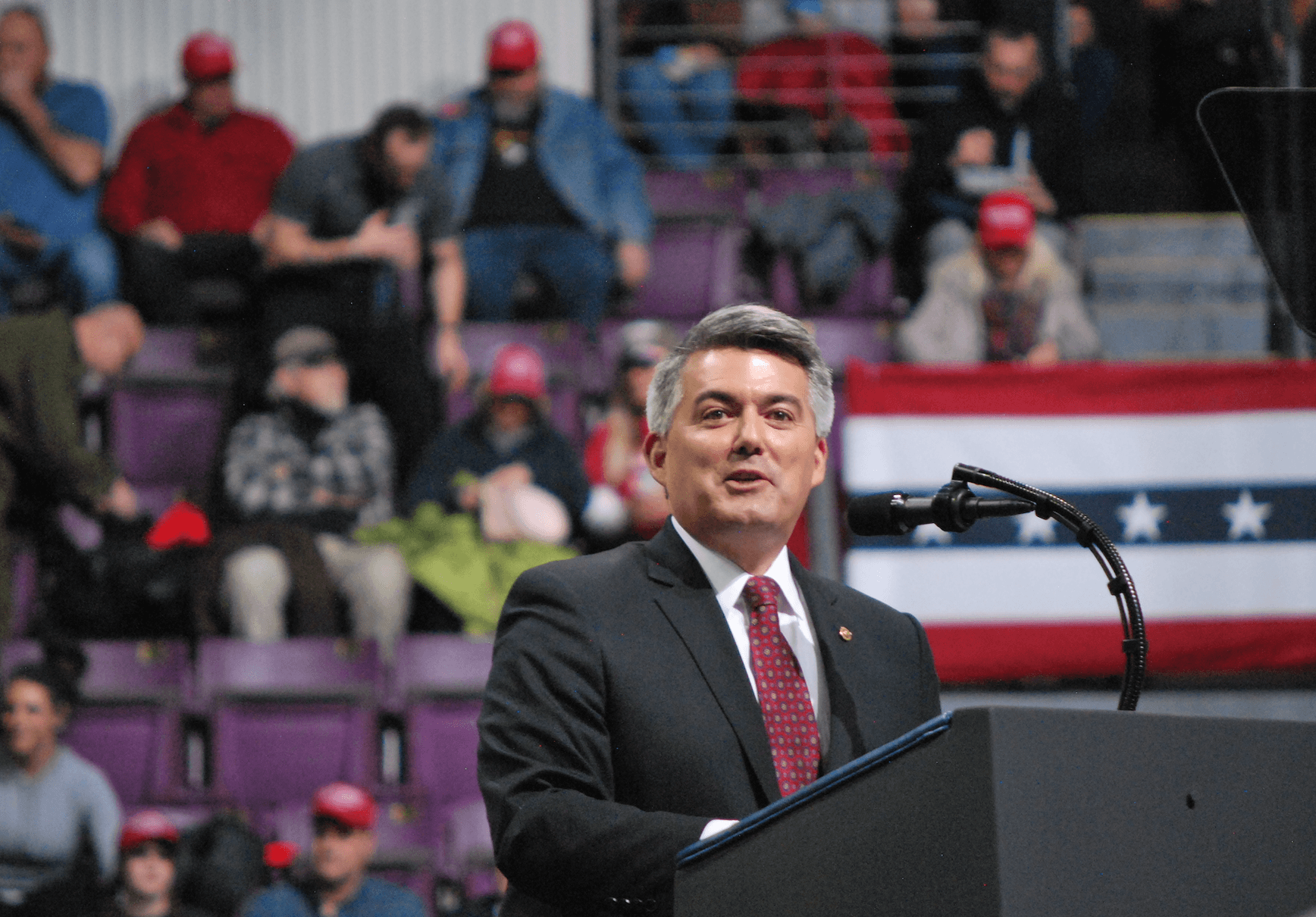For Sen. Cory Gardner (R-CO), the coronavirus pandemic is only going to make an already-difficult re-election fight in November even more of an uphill battle, multiple political experts told the Colorado Times Recorder in recent interviews.
“The coronavirus is, by the time election rolls around, likely to be a really substantial albatross around the neck of anyone running as a Republican, fairly or unfairly,” said Seth Masket, a professor of political science at the University of Denver.
Masket said he still thinks Gardner is going to outperform President Donald Trump in November, but the pandemic has set back his chances to win.
“This can only hurt Gardner,” he added.
Political commentators have noted that Gardner has been taking a risk by tying himself so closely with the Trump administration in a state where Trump is unpopular.
Now, those links could make him, in voters’ eyes, guilty by association with the administration’s handling of the outbreak, say political experts. Recent polling already shows Gardner’s popularity slipping further.
Gardner Linked to Trump’s “Gross Ineptitude?”
Gardner is in “big, big trouble,” according to Norm Ornstein, a political scientist at the American Enterprise Institute, calling Gardner “the most vulnerable [U.S. Senate] Republican running for reelection.”
Most outlooks for the COVID-19 crisis are bleak, he said, and the economic recovery Trump has been promising is unlikely to arrive before November.
If an economic slump happens it’s going to harm incumbents, Ornstein added.
Trump’s efforts to help Gardner–like crediting the first-term senator for a deal on ventilators after the Trump administration had canceled a previous, better deal with Gov. Jared Polis (D-CO)–aren’t going to help enough, and may only drag Gardner down as voters lash out against what Ornstein called the “gross ineptitude and corruption” of the administration’s pandemic response.
Gardner’s Hard Work Isn’t Really Helping
Colorado political commentator Eric Sondermann says Gardner is making good decisions, but they aren’t really helping the senator.
“I think Gardner’s done everything possible to benefit himself. He’s been attentive, he’s worked hard, he’s brought some critical equipment to Colorado,” said Sondermann. “In the final analysis, do I think it’s going to make a difference, or do I think it’s going to benefit him? Not really.”
Another way coronavirus may hurt Gardner is by ensuring his Democratic opponent is former Democratic Gov. John Hickenlooper, the candidate Gardner “least wants to face,” according to Sondermann.
“[The pandemic] has made it impossible to organize much of a grassroots rebellion” against Hickenlooper, he said, adding that the virus has “frozen” the primary race in place, benefitting the candidate with greater name recognition.
On the other hand, Democratic voters may see Gardner as so weak that they’re emboldened to vote for a further-left candidate in the primaries, said Masket, although he noted that Hickenlooper is still in a “very favorable position.”
J. Miles Coleman, associate editor at political newsletter Sabato’s Crystal Ball, added that the biggest beneficiaries of the pandemic so far have been governors.
Hickenlooper, he said, has been taking advantage of the prestige of his previous office to appeal to voters, including in ways like his recent op-ed on his role in the expansion Medicaid, a federal-state health insurance program for low-income earners.
Coleman noted similarities between Colorado’s senate race and Sen. Jacky Rosen’s (D-NV) defeat of former Sen. Dean Heller in Nevada in 2018. In that race, like Colorado’s, a Democrat defeated an incumbent Republican senator in a state that Hilary Clinton won in 2016. Coleman said that he expects a similar breakdown of voter support in Colorado’s race.
Gardner In Trouble Pre-Coronavirus
Most experts noted, though, that Gardner’s re-election difficulties stem from years of aligning closely with Trump, and Trump’s overall unpopularity in Colorado–and that the COVID-19 outbreak exacerbated this situation but did not create it.
“Long before anyone heard of coronavirus,” Sondermann said, “Cory Gardner was in deep political trouble.”




